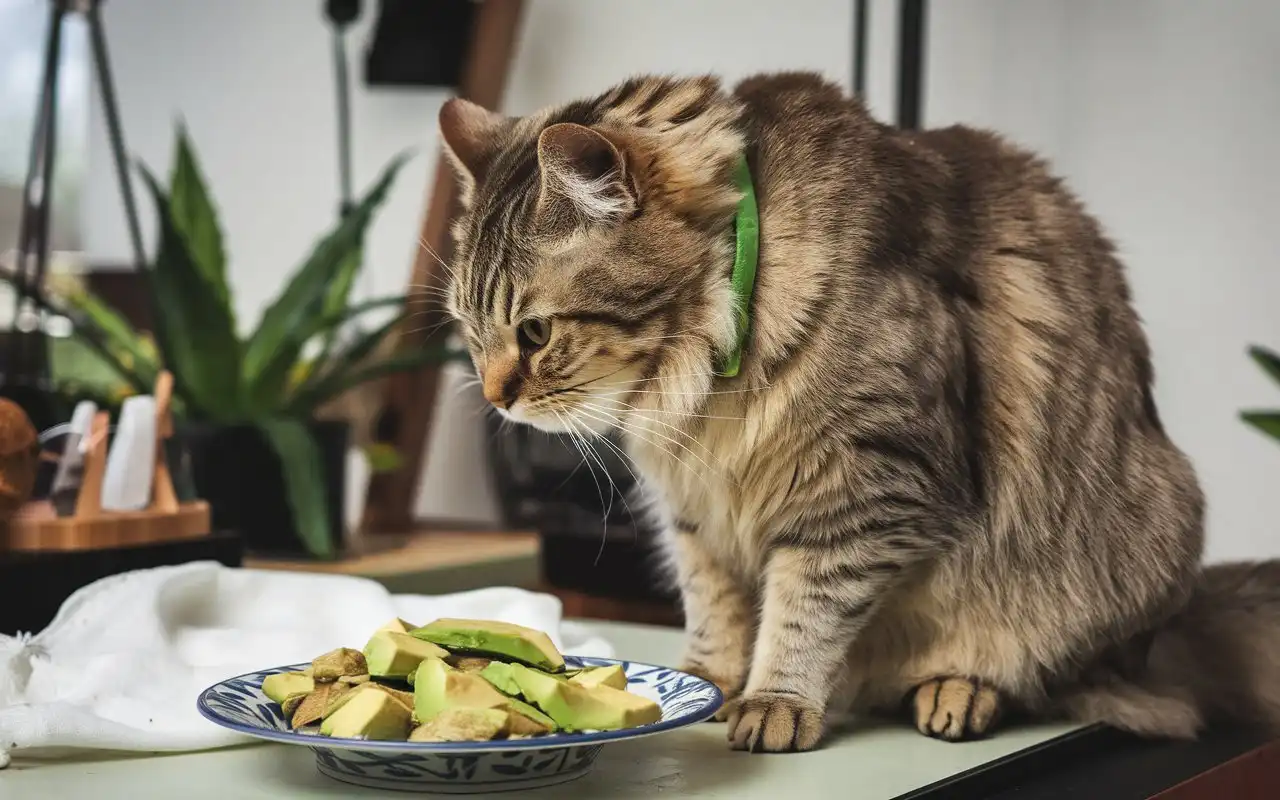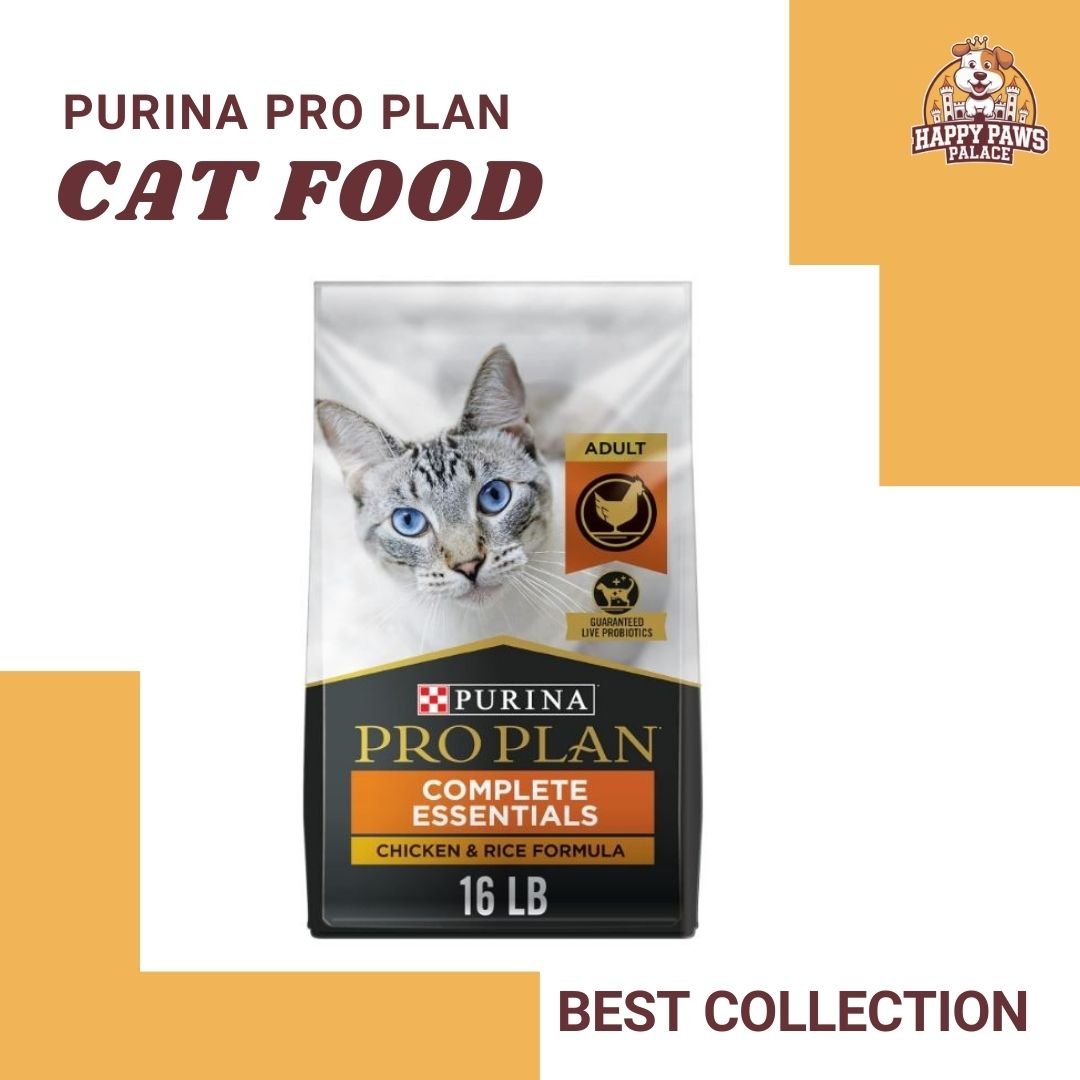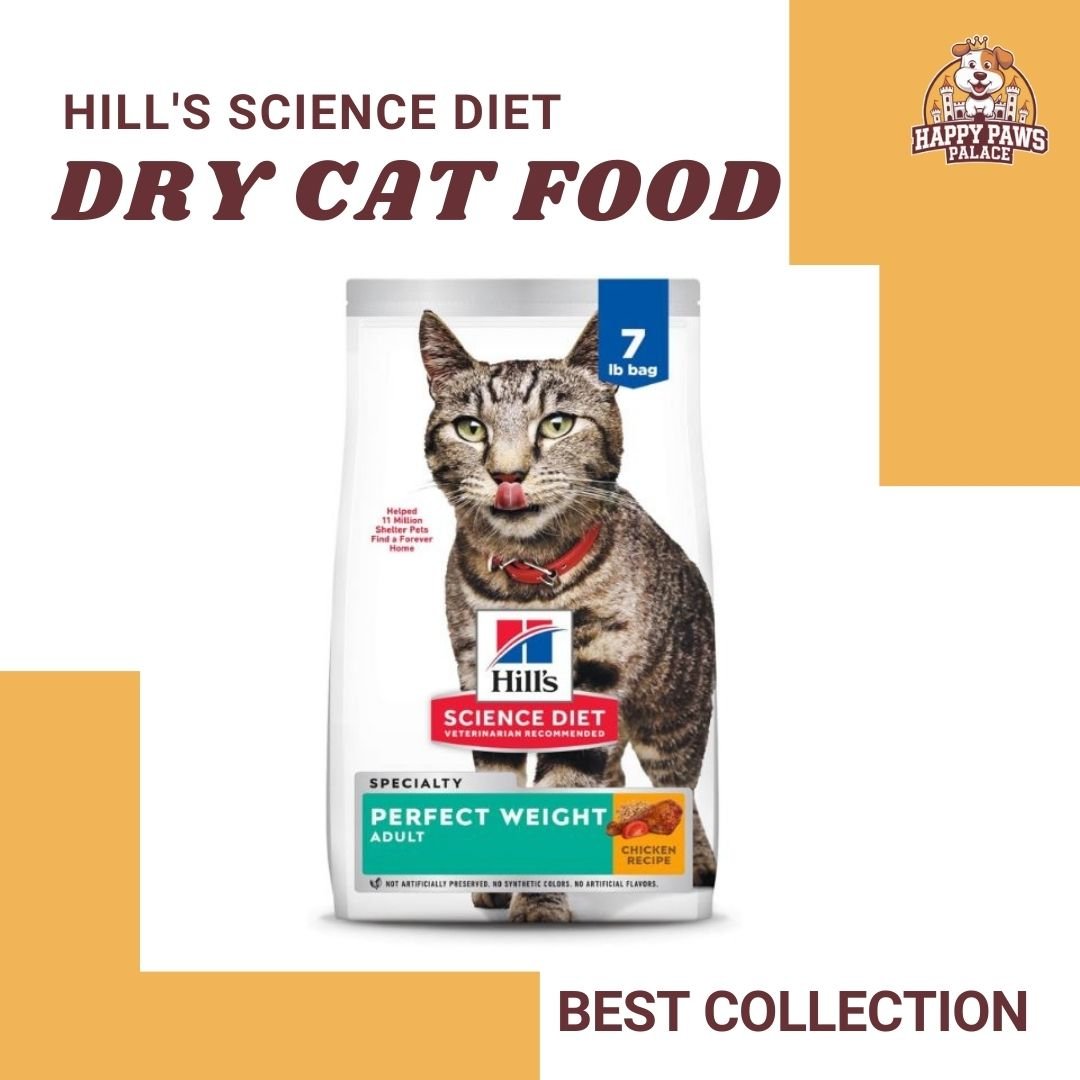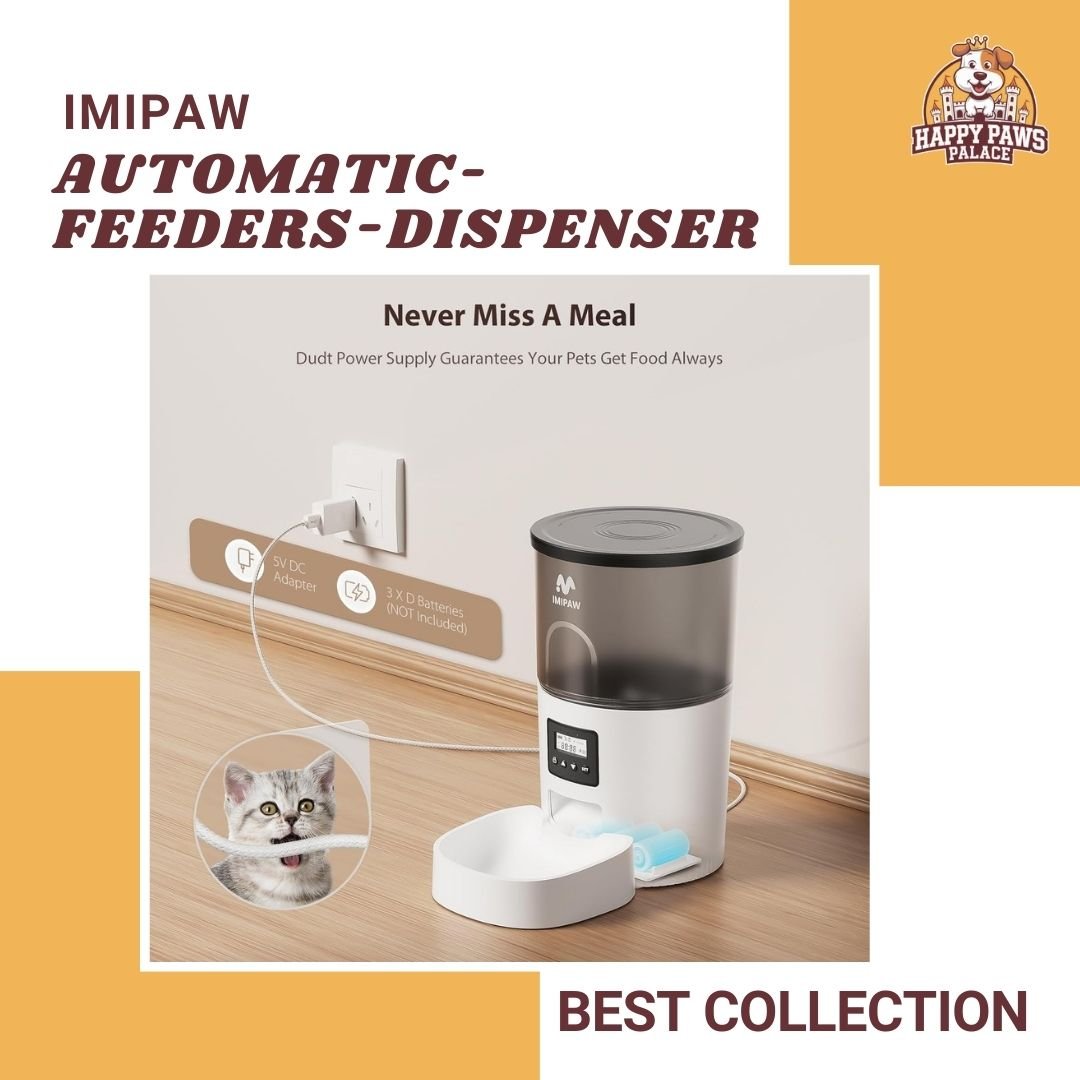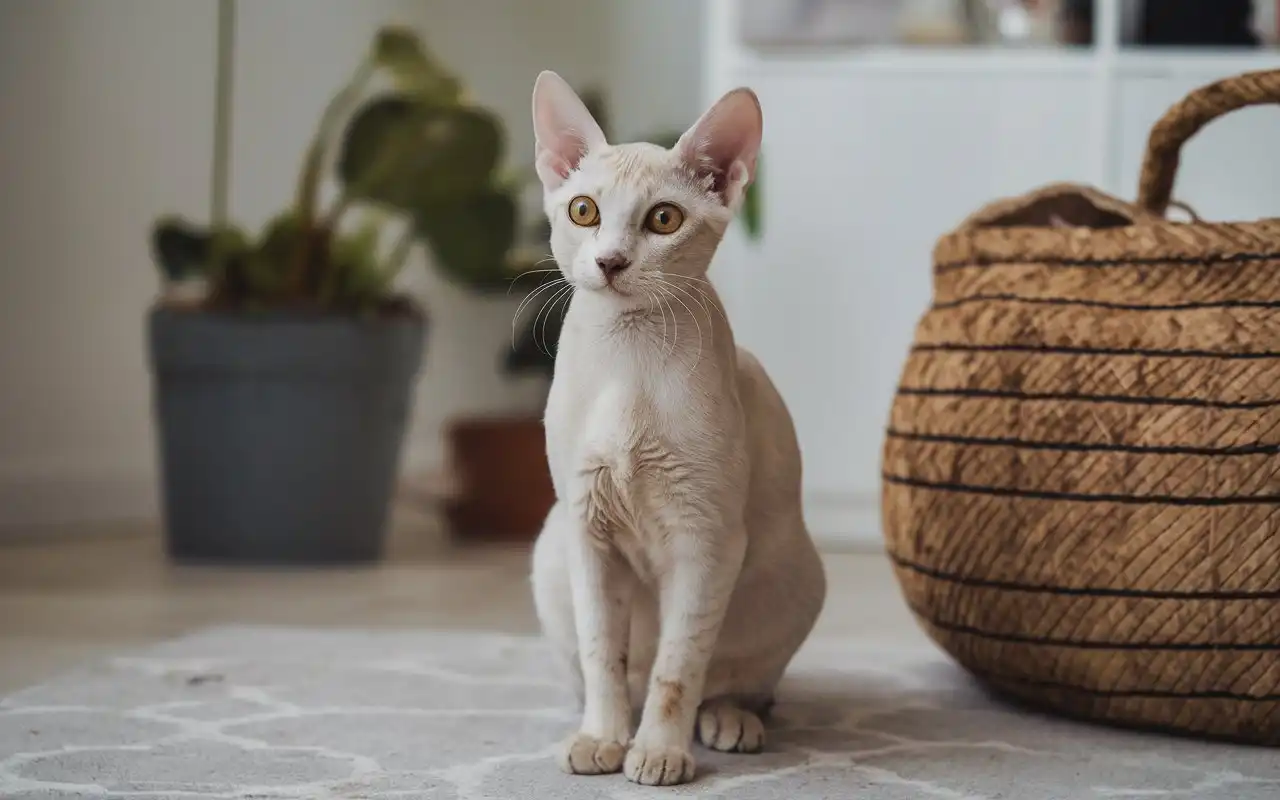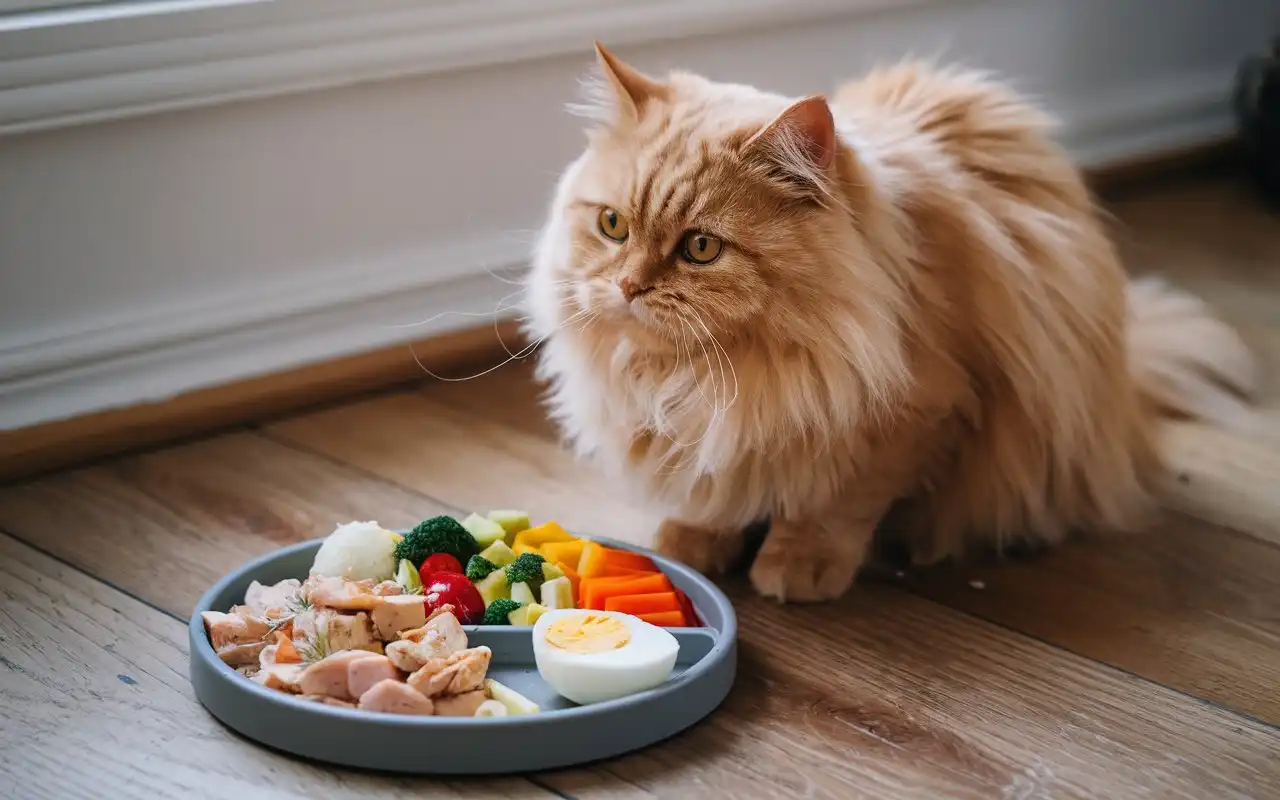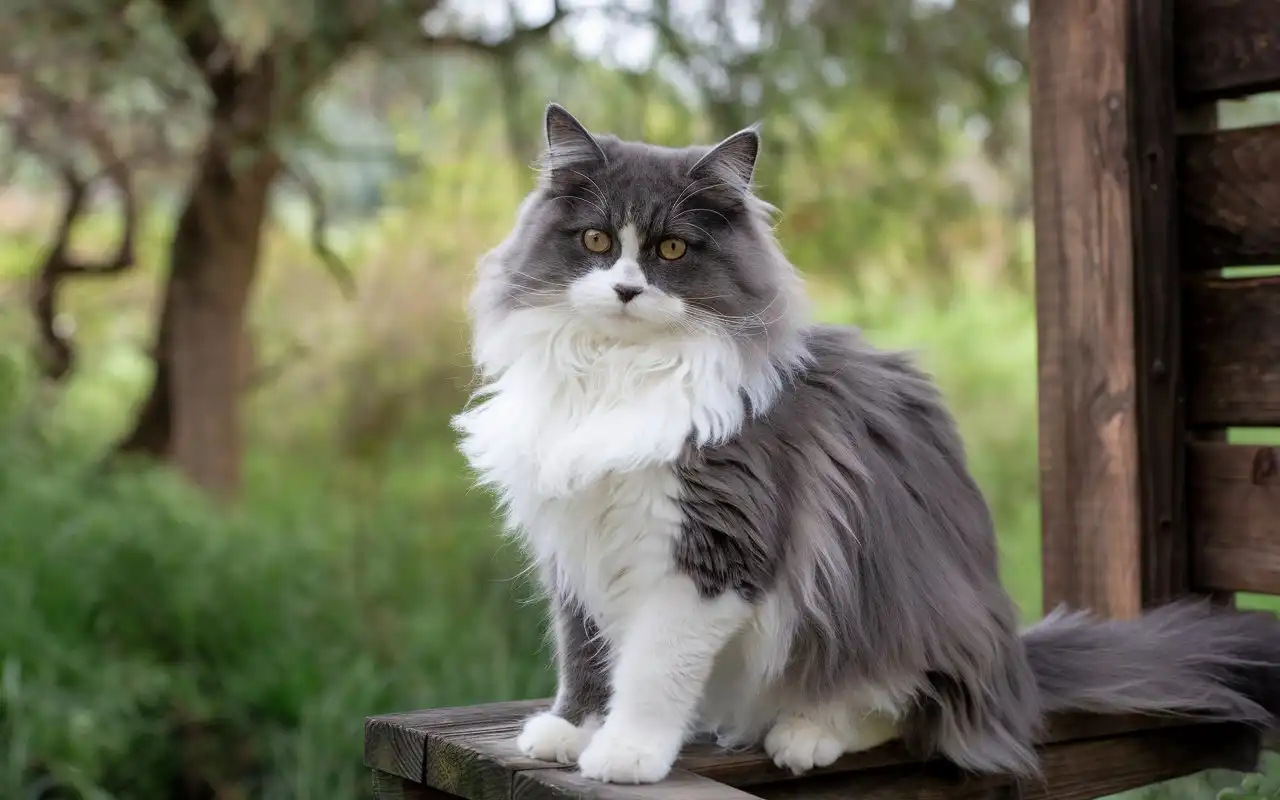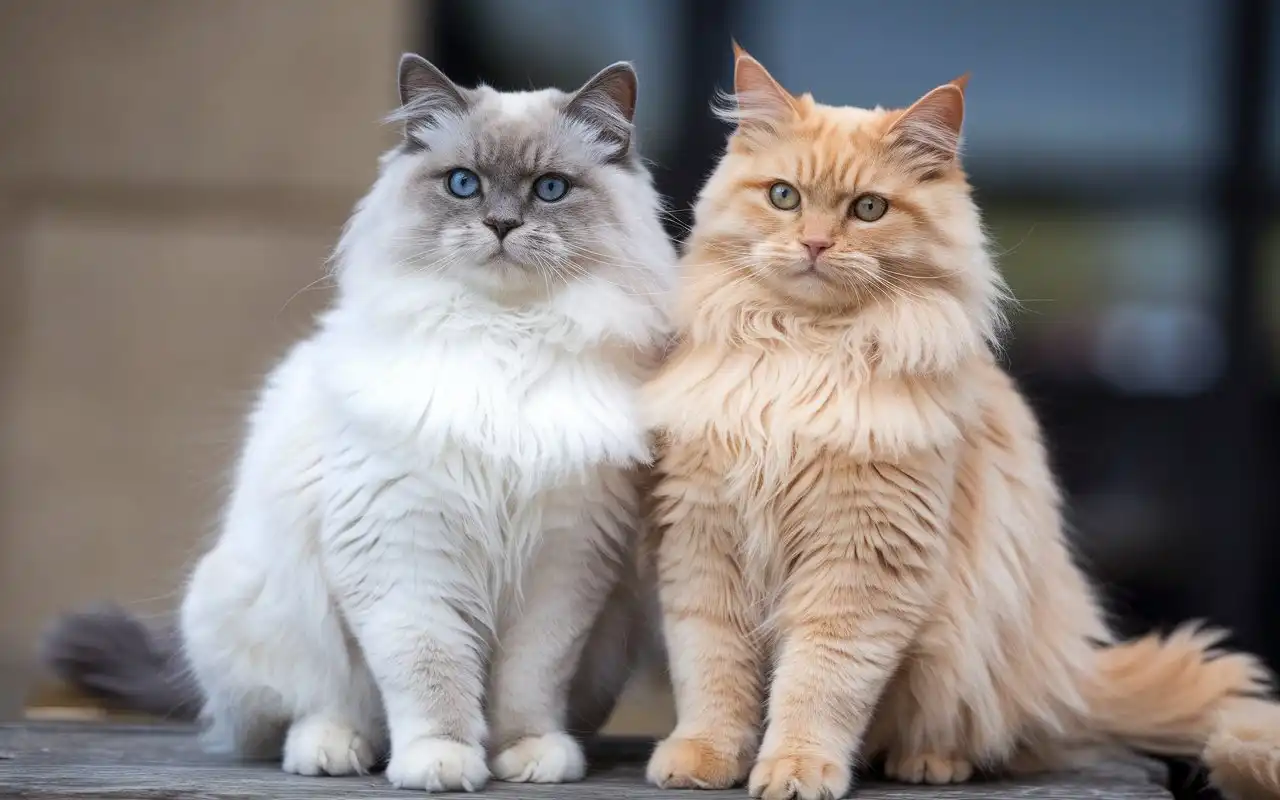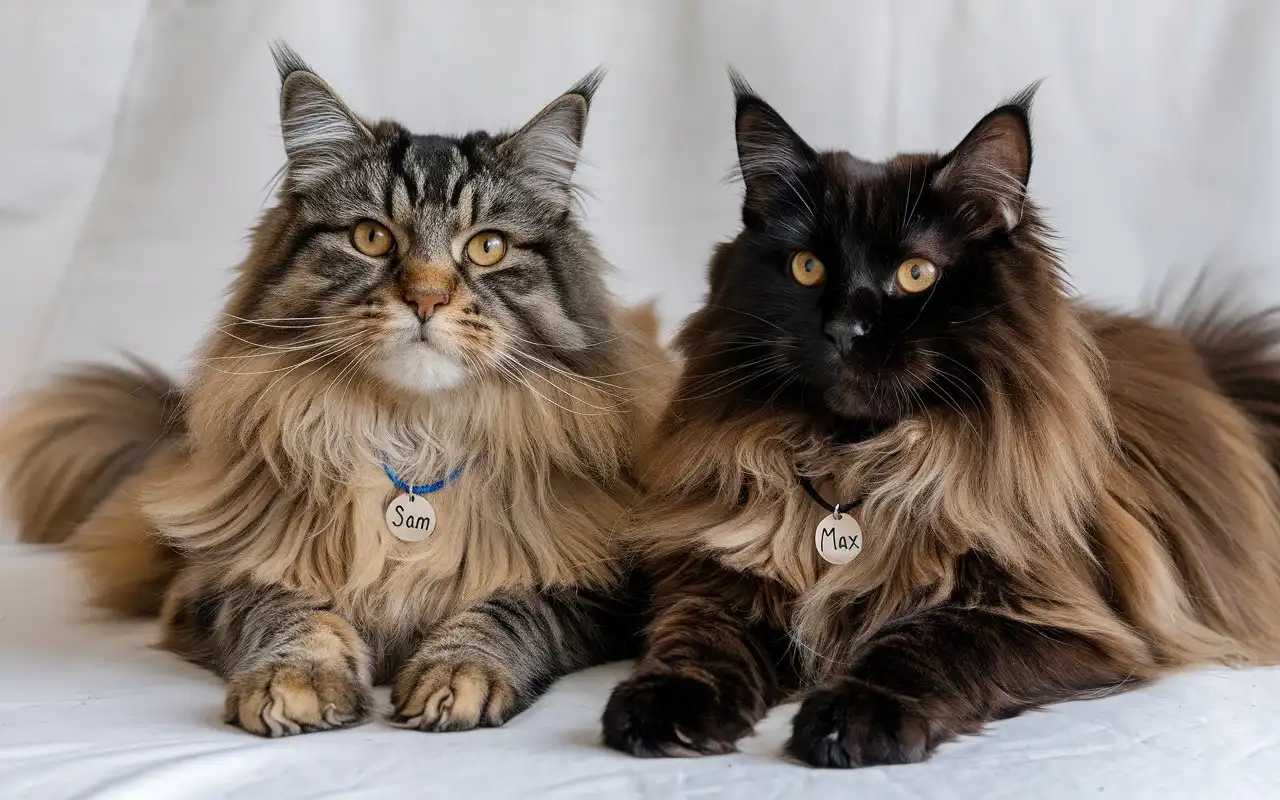Can cats eat avocado? As avocados become more popular in human diets, pet owners might wonder if this trendy fruit is safe for their feline friends. With its creamy texture and rich flavor, avocado is packed with nutrients for humans, but does that mean it’s beneficial—or even safe—for cats? In this article, we’ll dive into the risks, potential benefits, and expert tips surrounding the question, “Can cats eat avocado?”
Table of Contents
Can Cats Eat Avocado?
Can cats eat avocado? The simple answer is complicated. Small amounts of avocado flesh might not be toxic to cats. But, avocados contain substances that could harm their health. For concerned cat owners, understanding these risks is key to making informed feeding decisions. The curiosity stems from avocados’ reputation as a superfood for humans, rich in healthy fats and vitamins. However, cats have different diets and metabolisms. So, we must check if avocado meets their needs.
Is Avocado Safe for Cats?
Can cats eat avocado? Not entirely. While some animals, like birds, are highly susceptible to avocado toxins, cats fall into a gray area. Avocado parts, especially the skin, pit, and leaves, contain persin. It’s a fungicidal toxin that can harm many animals, including cats, in high doses. However, cats are generally less sensitive to persin compared to other animals. Despite this, the potential risks associated with consuming avocado still warrant caution. The primary concern is the ingestion of avocado pits and skin, which can lead to choking hazards or intestinal blockages. Therefore, it is crucial to ensure that only the safe parts, if any, are considered for your cat’s diet.
Nutritional Value of Avocado for Cats
Can cats eat avocado? Avocados are high in vitamins A, C, E, and K and contain healthy fats, fiber, and folate—all beneficial nutrients for humans. However, cats are obligate carnivores. They must get their nutrients from meat, not plants. This reduces the nutritional value avocados may hold for them. Avocados’ healthy fats can support a shiny coat and skin. But, cats usually get these fats from animal sources that better meet their dietary needs. Moreover, the fiber in avocados might aid in digestion, but excessive fiber can lead to gastrointestinal issues in cats. Therefore, the benefits of avocado’s nutrients are not as significant for cats as they are for humans.
Risks of Feeding Avocado to Cats
Avocado flesh contains fewer toxins than the skin or pit, but it can still cause mild stomach upset in cats. Persin, although found in smaller amounts in the flesh, can lead to issues in sensitive cats. Additionally, the high fat content may cause digestive problems, including diarrhea and vomiting. Eating too much fat can cause pancreatitis. It’s a serious, potentially deadly condition that affects the pancreas. It needs prompt treatment. Furthermore, avocado pits pose a choking hazard and can cause intestinal blockages if swallowed.
The skin of the avocado is tough and difficult to digest, potentially leading to obstruction in the digestive tract. Therefore, it is imperative to monitor your cat’s intake and avoid feeding them any part of the avocado that could be harmful.
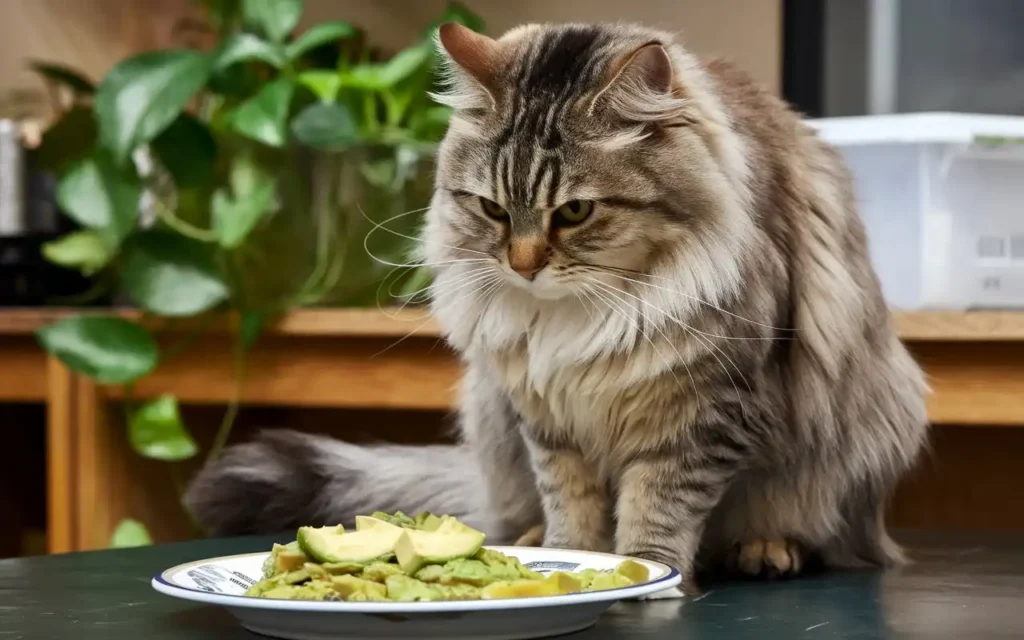
Benefits of Avocado for Cats
Avocados have little nutritional value for cats. But small amounts of avocado oil may help their coat and skin. The monounsaturated fats in avocado oil can help maintain healthy skin and fur, promoting a lustrous appearance. Also, avocado oil has antioxidants like vitamin E. They can enhance the immune system and alleviate inflammation. However, it’s better to use feline-specific supplements, not avocado. They achieve these benefits and reduce the risk of toxicity. Avocado oil can help if used sparingly. But consult a vet before adding any supplement to your cat’s diet. It must meet their health and dietary needs.
How Much Avocado is Safe for Cats?
If your cat accidentally ingests a small amount of avocado flesh, it’s unlikely to cause significant harm. However, it’s best to avoid offering it regularly. A tiny bite may be safe, but always monitor for symptoms of stomach upset, such as vomiting or diarrhea. The safe serving size is minimal—think of a small cube or a thin slice—as too much can overwhelm their digestive system. It’s important to introduce any new food gradually and in small amounts to observe how your cat reacts.
Some cats may have a higher tolerance, while others may be more sensitive to the fats and potential toxins in avocado. Always prioritize your cat’s health by limiting avocado to an occasional treat rather than a regular part of their diet.
What to Do If Your Cat Eats Avocado?
If your cat consumes avocado, observe them closely for any unusual behavior or symptoms. Contact a veterinarian immediately if your cat displays signs of distress or if you’re concerned about the amount ingested. Responding swiftly is crucial to avert significant issues. Begin by assessing how much avocado your cat has eaten and which parts were consumed. If your cat ate a small amount of flesh, monitoring for mild symptoms like slight vomiting or a bit of diarrhea might be sufficient.
However, ingestion of larger quantities, pits, or skin requires immediate veterinary attention. Your veterinarian may recommend inducing vomiting or performing a gastric lavage to remove the toxins from your cat’s system. Prompt action can significantly reduce the risk of severe health issues.
Signs of Avocado Poisoning in Cats
Avocado poisoning in cats can cause vomiting, diarrhea, lethargy, and breathing problems. If these signs appear, it’s essential to consult a veterinarian for immediate care. The severity of symptoms can depend on the amount ingested and the cat’s sensitivity. Vomiting and diarrhea are the most immediate signs as the body attempts to expel the toxin. Lethargy indicates that the cat’s energy levels are being drained, potentially due to systemic effects of persin. In severe cases, breathing difficulties may arise, signaling significant distress. Other possible symptoms include abdominal pain, dehydration, and increased heart rate. Early recognition of these symptoms and prompt veterinary help can prevent long-term health issues or death.
Can Cats Eat Avocado-Based Products?
Don’t give cats avocado-based products, like guacamole. They may contain harmful ingredients like onions, garlic, and salt. These foods can exacerbate toxicity and cause further digestive distress. Onions and garlic are very dangerous for cats. They can cause hemolytic anemia. It destroys red blood cells faster than the body can make them. Also, high salt can cause electrolyte imbalances. This leads to increased thirst, urination, and possibly severe kidney issues. Processed avocado products often have spices and additives that are unsafe for cats. To keep your cat safe, avoid all avocado-based products. Stick to foods made for cats.
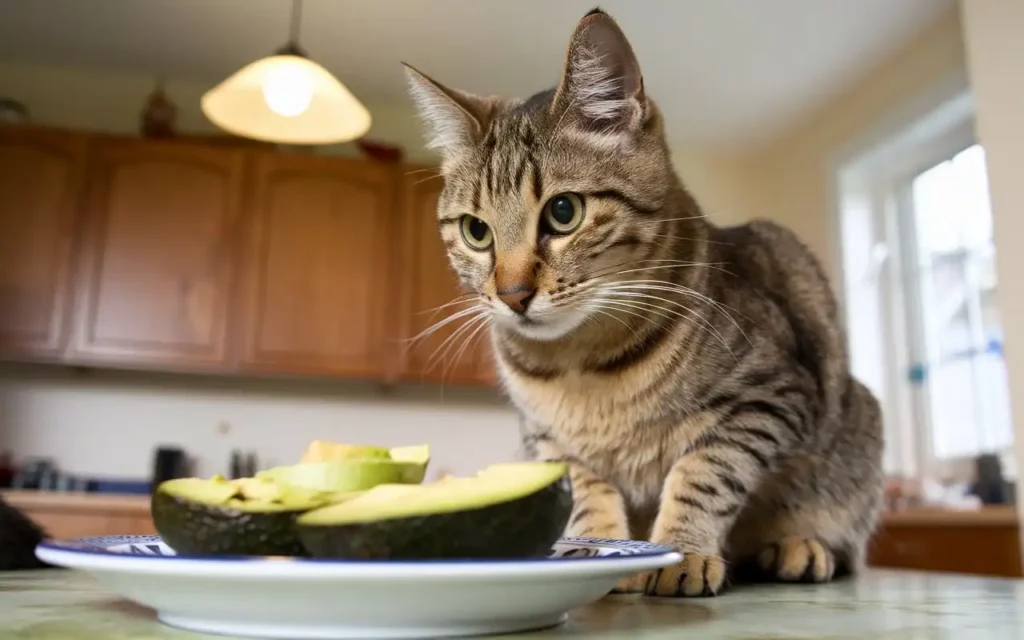
Alternatives to Avocado for Cats
For healthy treats, try cat-safe fruits. These include blueberries, apples (without seeds), and small amounts of cooked pumpkin. These provide fiber and antioxidants without the risks associated with avocados. Blueberries are rich in vitamins and antioxidants that can support your cat’s immune system. Peeled, deseeded apples have a crunchy texture and sweetness. Some cats enjoy them. Cooked pumpkin aids digestion. Its high fiber helps both constipation and diarrhea. Also, treats like cooked chicken or turkey can meet your cat’s meat cravings. They provide essential proteins. Introduce new foods gradually. Consult your vet to ensure they suit your cat’s diet.
Expert Opinions on Avocado and Cats
Many vets advise against feeding avocado to cats. It contains persin and may cause digestive upset. Research on feline diets shows that, for health, cats need protein-rich, meat-based foods, not plant sources. Dr. Emily Klein, a feline nutrition expert, says, “Avocado is not highly toxic to cats. But it can cause stomach upset and may contain toxins. So it is an unsuitable treat for them.” Dr. Mark Thompson, a veterinary toxicologist, agrees. He says, “Avocado’s benefits don’t match a cat’s diet.” Safer, better options are available.” These experts agree that avocados aren’t needed and can harm cats. This stresses the need for species-appropriate diets.
General Feeding Tips for Cats
Cats thrive on a diet rich in animal proteins and specific amino acids, such as taurine. Human foods are often unsuitable for feline digestive systems and can lead to issues over time. Constantly check with a veterinarian before trying new foods. Here are some general feeding tips to ensure your cat remains healthy:
- Balanced Diet: Ensure that your cat’s diet is balanced and primarily composed of high-quality animal proteins. This aligns with their natural dietary needs as obligate carnivores.
- Portion Control: Don’t overfeed pets. It can cause obesity and health problems, like diabetes and joint issues. Follow the feeding guidelines .
- Avoid Harmful Foods: Avoid foods that are toxic to cats. These include onions, garlic, chocolate, grapes, and some artificial sweeteners (like xylitol).
- Fresh Water: Always provide access to fresh, clean water to keep your cat hydrated and support overall health.
- Regular Feeding Schedule: Feed your cat at the same times each day. This will regulate its metabolism and digestion.
- Monitor Weight and Health: Regularly check your cat’s weight and health. Adjust their diet as needed, with your vet’s advice.
These tips will help you feed your cat a healthy, tailored diet. It will promote their health and longevity.
Popular Myths About Cats and Human Cuisine
A common myth is that small amounts of human food are harmless. Occasional treats may not be toxic. But regular feeding of bad foods can cause obesity, diabetes, and other health issues in cats. Another misconception is that cats will enjoy human foods, like vegetables and fruits. Cats need a diet high in animal protein. They must get specific nutrients from meat.
Some pet owners think that if a food is healthy for humans, it must be healthy for cats. This is not always true. For example, foods high in fat or salt can be detrimental to a cat’s health. Knowing these misconceptions helps make better diet choices for your cat. It ensures they get the right nutrition without unnecessary risks.
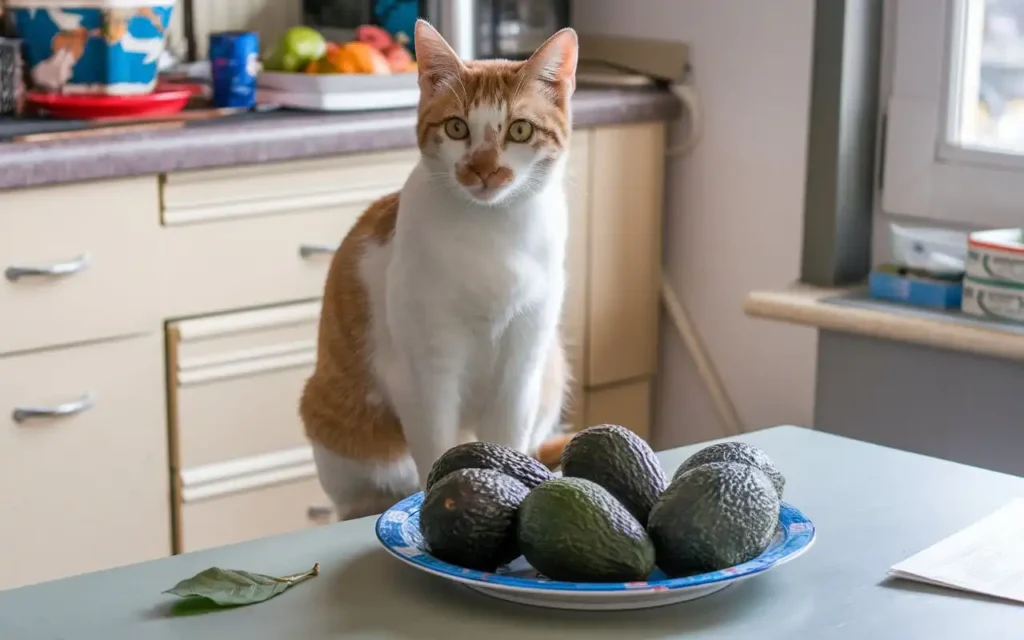
Conclusion
In summary, can cats eat avocado? A small taste of avocado is unlikely to harm a healthy cat. However, the risks of avocados outweigh their benefits. Cats need a diet high in animal-based proteins. Avocado is not needed and may be harmful. When in doubt, keep your feline friend’s meals simple, safe, and specifically designed for their unique needs. A balanced, species-appropriate diet is key. It keeps your cat healthy, happy, and free from avoidable health issues. Always consult your vet before adding new food to your cat’s diet. It ensures their safety and well-being.

